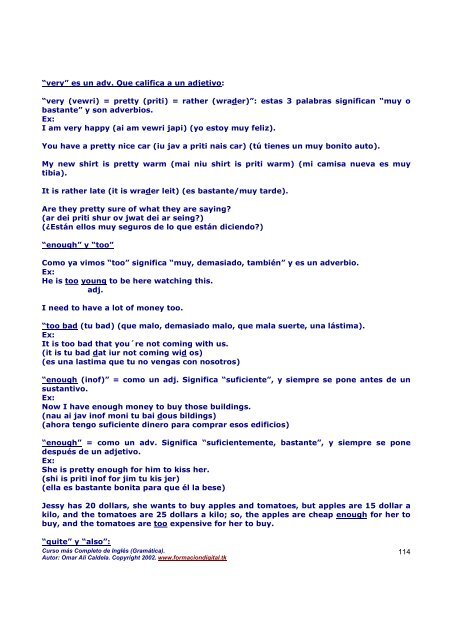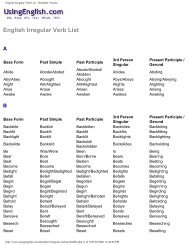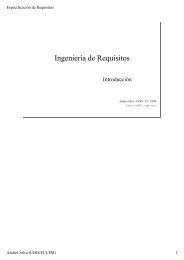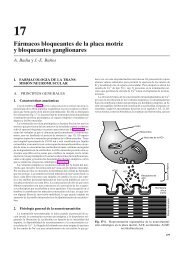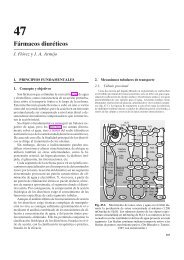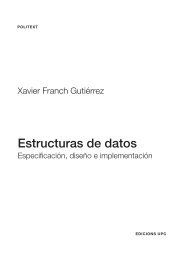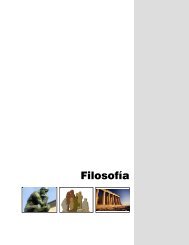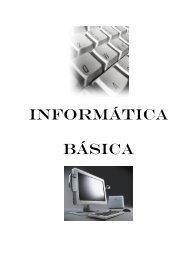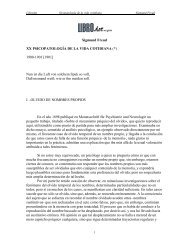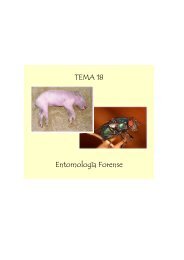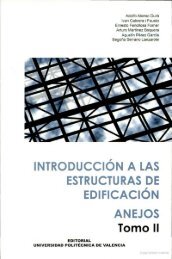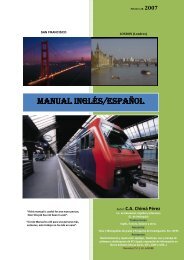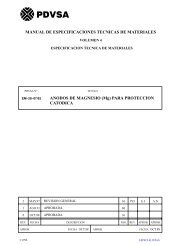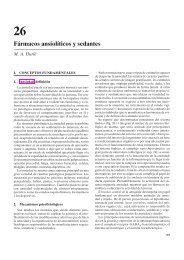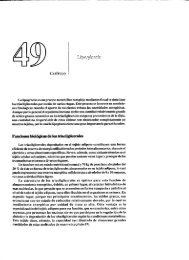EL CURSO MAS COMPLETO DE INGLES .pdf - sisman
EL CURSO MAS COMPLETO DE INGLES .pdf - sisman
EL CURSO MAS COMPLETO DE INGLES .pdf - sisman
You also want an ePaper? Increase the reach of your titles
YUMPU automatically turns print PDFs into web optimized ePapers that Google loves.
“very” es un adv. Que califica a un adjetivo:<br />
“very (vewri) = pretty (priti) = rather (wrader)”: estas 3 palabras significan “muy o<br />
bastante” y son adverbios.<br />
Ex:<br />
I am very happy (ai am vewri japi) (yo estoy muy feliz).<br />
You have a pretty nice car (iu jav a priti nais car) (tú tienes un muy bonito auto).<br />
My new shirt is pretty warm (mai niu shirt is priti warm) (mi camisa nueva es muy<br />
tibia).<br />
It is rather late (it is wrader leit) (es bastante/muy tarde).<br />
Are they pretty sure of what they are saying?<br />
(ar dei priti shur ov jwat dei ar seing?)<br />
(¿Están ellos muy seguros de lo que están diciendo?)<br />
“enough” y “too”<br />
Como ya vimos “too” significa “muy, demasiado, también” y es un adverbio.<br />
Ex:<br />
He is too young to be here watching this.<br />
adj.<br />
I need to have a lot of money too.<br />
“too bad (tu bad) (que malo, demasiado malo, que mala suerte, una lástima).<br />
Ex:<br />
It is too bad that you´re not coming with us.<br />
(it is tu bad dat iur not coming wid os)<br />
(es una lastima que tu no vengas con nosotros)<br />
“enough (inof)” = como un adj. Significa “suficiente”, y siempre se pone antes de un<br />
sustantivo.<br />
Ex:<br />
Now I have enough money to buy those buildings.<br />
(nau ai jav inof moni tu bai dous bildings)<br />
(ahora tengo suficiente dinero para comprar esos edificios)<br />
“enough” = como un adv. Significa “suficientemente, bastante”, y siempre se pone<br />
después de un adjetivo.<br />
Ex:<br />
She is pretty enough for him to kiss her.<br />
(shi is priti inof for jim tu kis jer)<br />
(ella es bastante bonita para que él la bese)<br />
Jessy has 20 dollars, she wants to buy apples and tomatoes, but apples are 15 dollar a<br />
kilo, and the tomatoes are 25 dollars a kilo; so, the apples are cheap enough for her to<br />
buy, and the tomatoes are too expensive for her to buy.<br />
“quite” y “also”:<br />
Curso más Completo de Inglés (Gramática).<br />
Autor: Omar Ali Caldela. Copyright 2002. www.formaciondigital.tk<br />
114


